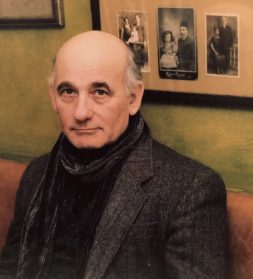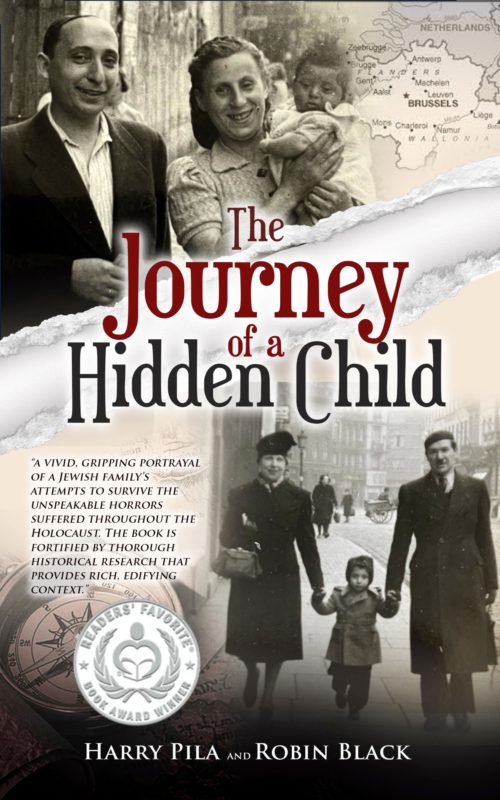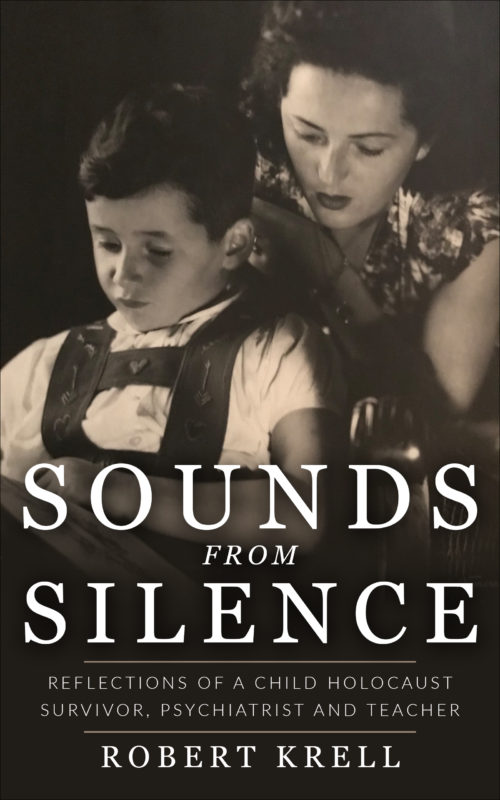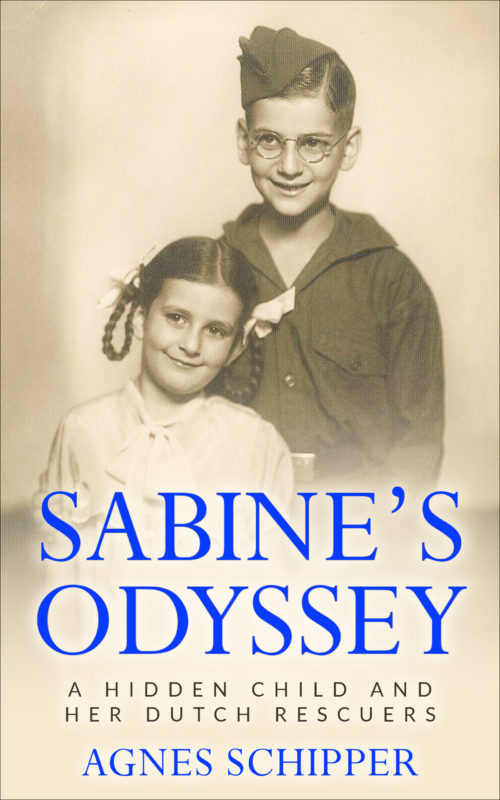Searching for Home: The Impact of WWII on a Hidden Child by Joseph Gosler is a Holocaust memoir which tells the life story of the author, a child who was hidden from the Nazis during WWII.
I always go into memoirs with some scepticism. I struggle to rate them because sometimes it feels like I’m rating that person’s life when I’m not, so it’s always a quite difficult topic to discuss and accurately rate. However, the first couple of pages of this book really drew me in and I liked the structure of this book, there were no chronological issues as I have seen in other memoirs where the stories jumps back and forth through the person’s life, and instead, here, Joseph Gosler narrated his life, events, feelings and emotions from his birth to the present day.
I will say that it’s always complicated to review a book such as this. I found the writing style to be very fluid, I didn’t always find everything said to be necessary to bring the message across, but I did find the book to be well written and human. A lot of the time, in books talking about WWII and its impact on the individual as well as the whole world, I find that these events are described in a way that doesn’t really make sense, and knowing that this war and the atrocities done to people during it, especially to Jews and other religious groups and minorities, tended to dehumanise them to extremes never before witnessed, it seems strange to me that in writing a memoir about this time, the dehumanisation would continue. In this book, however, thankfully, there was no dehumanisation and I found myself understanding and empathising with the author all the more because he did not hold back his emotions or dehumanise himself and others.
I really enjoyed the structure of this book, it was separated in a few parts, the biggest were separated by the places in which they were set. The first part of the story is set in the Netherlands, when Joseph was born, was “hidden” with another family, and then given back to his parents after the war was over. The second part of the story was set in Israel where the family moved to after the war was over and where they lived in a kibbutz, a type of community where everything is shared with all the members and the children live in dormitories together. The third part of the book was set in America, where the family and extended family members emigrated to after leaving Israel. This last timeline is the longest and most profound in my opinion because it encompasses Joseph’s adolescence, his puberty, coming to terms with anger, loss, pain and other psychological consequences of WWII learning about himself and his passions, discovering more to life and cultures, travelling, finding work and eventually settling down with a family.
This book focuses more on the actual impact – hence the title – of the war rather than the war itself, and I found this really intriguing because it’s clear to see that the people who survived this war suffered profoundly after its end, whether physically scarred or mentally scarred. It really gave me an insight into the atrocities of the war on a more individual level and how Joseph has suffered from depression, anxiety, fear, loss, loneliness, hopelessness and many other feelings since his return to his biological parents after the end of the war. I don’t want to explain too much about the actual story of his life because I believe it needs to be experienced first-hand. I will say that it is a very emotional account and I found this to make this book special. I’ve read a lot of books set before, during and after WWII, not many nonfictional ones, but the ones I have read seemed lacking emotionally to me, and this one was very different for me.
MY THOUGHTS AND RATING
Overall, I really enjoyed this book and it brought me a lot of insight into what life would have been like and still is for Jewish survivors of WWII. It’s very important to understand the enormous consequences that this event had on the lives of so many people. We can possibly understand what people like Joseph went through while they were hidden children and the multiple feelings he has felt throughout his life because of that experience, but by reading about it and trying to understand the impact, we can do our best to not let anything like this happen again in the future.
It was a really profound experience for me and I’ve enjoyed reading the books published by Amsterdam Publishers because of their focus on Holocaust survivors. I have learned a lot more about this period by the emotional narration by individuals than any history book or historical account I could ever read and I think that people need this side of the story to fully understand this event that changed the world. I gave this book 4 stars, again, it’s really hard to rate a book like this one, I enjoyed it immensely and am very honoured to have been able to read it.
– Ellie, bookblogger of Read To Ramble
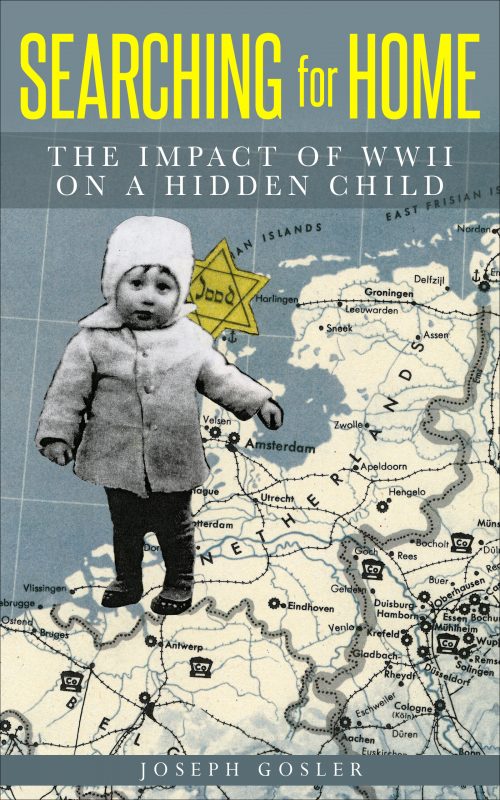
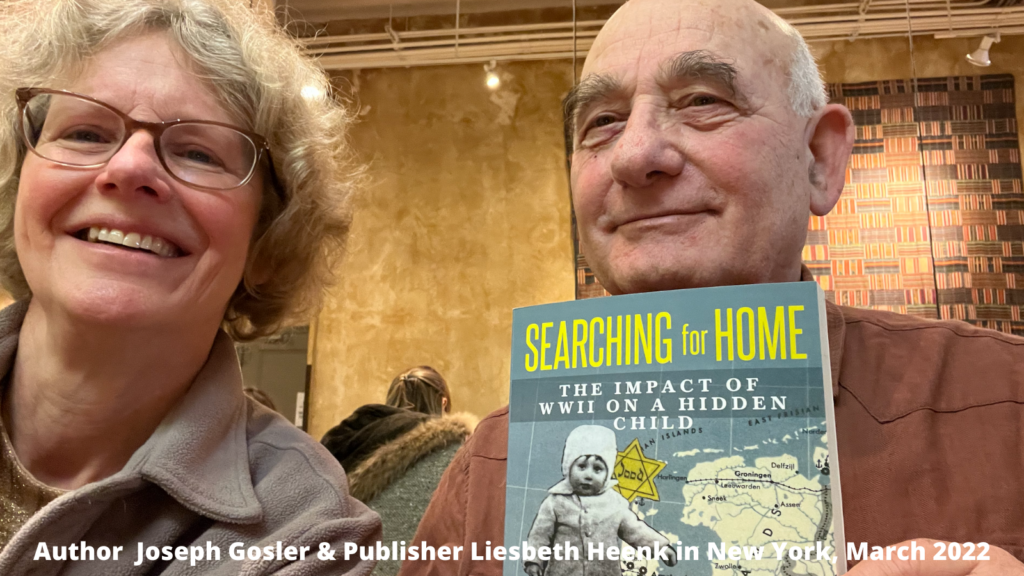
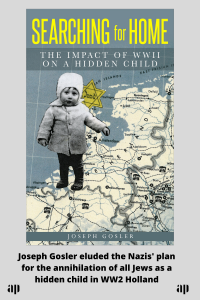 The Jewish Book Council publiushed a great article on Searching for Home by Joseph Gosler.
The Jewish Book Council publiushed a great article on Searching for Home by Joseph Gosler.



